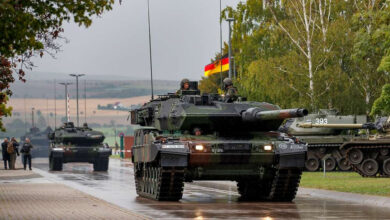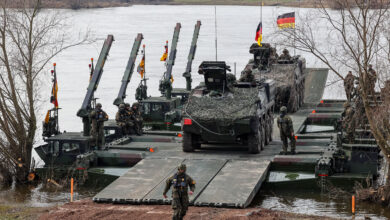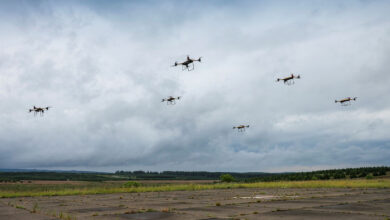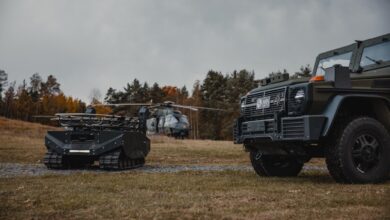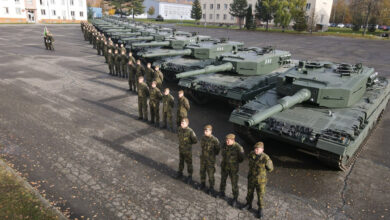QinetiQ Germany has conducted the first flight of a Rheinmetall Delta B15 target drone as part of the German Uncrewed Aerial Training Services (ATS).
The Delta B15 has been selected to meet Germany’s Ground-Based Air Defence requirements and has been upgraded to address emerging threats, including the Iran-designed Shahed one-way attack drones.
It will also be used to provide training to NATO and the European Sky Shield Initiative partner nations.
“We are thankful to have been chosen by QinetiQ to supply the new target drones playing an active role in the European Sky Shield Initiative,” CEO of Rheinmetall Technical Publications GmbH Mark Robert Henning said.
“The sophistication and diversity of airborne threats are ever-evolving. We at Rheinmetall are continuously anticipating these advances and are developing solutions to cope with these.”
The target drone will be used in Germany from 2025, with a future plan for operations at sea with the German Navy.
German Uncrewed Aerial Training Services
Earlier in August, QinetiQ was awarded a 284-million-euro ($311 million) contract to provide aerial training services to the German Armed Forces.
A range of tailored services will be provided under the 10-year contract, including joint terminal attack controller, red air, close air support, maritime air operations, ground control intercept, air traffic control, and target towing for ground-based air defense systems.
All four branches of the German Armed Forces will benefit from the services, with an optional extension of two years.
“In cooperation with Rheinmetall, QinetiQ Germany can expand its market position in the relevant procurement programs of our customers in Germany,” Head of Strategic Business Development (Germany) Matthias Grogor said.
“This means that we are actively preparing today for the arrival of newly procured weapon systems, always with an eye on current threats and an outlook to 2035.”





